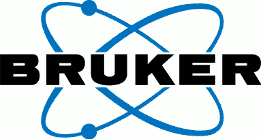Keynote Speaker:
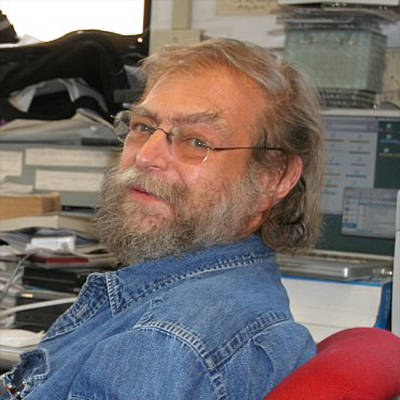
Ned Seeman
NYU
Nadrian C. Seeman was born in Chicago in 1945. Following a BS in biochemistry from the University of Chicago, he received his Ph.D. in biological crystallography from the University of Pittsburgh in 1970. His postdoctoral training, at Columbia and MIT, emphasized nucleic acid crystallography. He was the first to demonstrate the correctness of Watson-Crick base pairing at atomic resolution. He obtained his first independent position at SUNY/Albany, where his frustrations with the macromolecular crystallization experiment led him to the campus pub one day in the fall of 1980. There, he realized that the similarity between 6-arm DNA branched junctions and the flying fish in the periodic array of Escher's 'Depth' might lead to a rational approach to the organization of matter on the nanometer scale, particularly crystallization. Ever since, he has been trying to implement this approach and its spin-offs, such as nanorobotics and the organization of nanoelectronics; since 1988 he has worked at New York University, where he is the Margaret and Herman Sokol Professor of Chemistry. He was the founding president of the International Society for Nanoscale Science, Computation and Engineering. He has published over 280 papers, and has won the Sidhu Award, the Feynman Prize, the Emerging Technologies Award, the Rozenberg Tulip Award in DNA Computing, the World Technology Network Award in Biotechnology, the NYACS Nichols Medal, the SCC Frontiers of Science Award, the ISNSCE Nanoscience Prize, the Kavli Prize in Nanoscience, the Einstein Professorship of the Chinese Academy of Sciences, a Distinguished Alumnus Award from the University of Pittsburgh; he is a Thomson-Reuters Citation Laureate and was elected a Fellow of the American Crystallographic Association.
Invited Speakers:
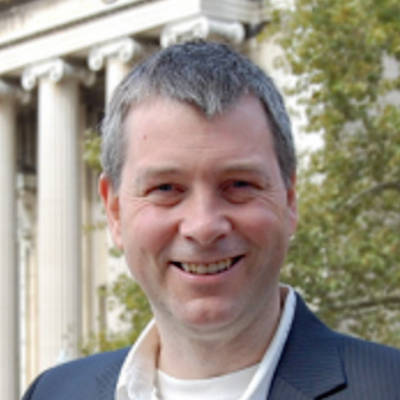
James Hone
Columbia
James Hone is currently Wang Fong-Jen Professor of Mechanical Engineering at Columbia University. He received his PhD in experimental condensed matter physics from UC Berkeley in 1998, and did postdoctoral work at the University of Pennsylvania and Caltech, where he was a Millikan Fellow. He joined the Columbia faculty in 2003. His current research interests include synthesis, characterization, manipulation, and applications graphene, and other 2D materials; nanomechanical devices; and nano-biology.

Stephen O'Brien
CCNY
Stephen O' Brien is an Associate Professor of Chemistry at City College New York and a member of the CUNY Energy Institute. He holds appointments on the Doctoral Faculty of the CUNY Graduate Center and Grove School of Engineering. Steve is a researcher in nanomaterials synthesis, properties and structural characterization: nanoparticle synthesis and self-assembly into superlattices, transition metal oxide nanomaterials, high k dielectrics/memory materials. He is published in over 90 articles as lead author or co-author in American and International research journals. Steve was an NSF CAREER recipient. He holds a D.Phil from Oxford University. He completed post-doctoral research at UC Santa Barbara and later at Columbia University and the IBM TJ Watson Research Center.
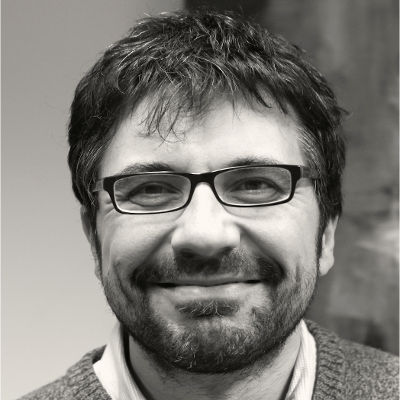
Fiorenzo Omenetto
Tufts University
Fiorenzo G. Omenetto is the Frank C. Doble Professor of Engineering, and a Professor of Biomedical Engineering at Tufts University. He also holds an appointment in the Department of Physics. His research interests cover nonlinear optics, nanostructured materials (such as photonic crystals and photonic crystal fibers), nanofabrication, and biopolymer-based technological applications.
He has proposed and pioneered the use of silk as a material platform for advanced technology with uses in photonics, optoelectronics and nanotechnology applications, is co-inventor on several disclosures on the subject, and is actively investigating novel applications that rely on this technology base both for technical and design applications. This material platform has recently been featured in MIT's Technology Review's magazine as one of the "top ten technologies likely to change the world." Prof. Omenetto was formerly a J. Robert Oppenheimer Fellow at Los Alamos National Laboratories, a Guggenheim Fellow, and is a Fellow of the Optical Society of America and of the American Physical Society.
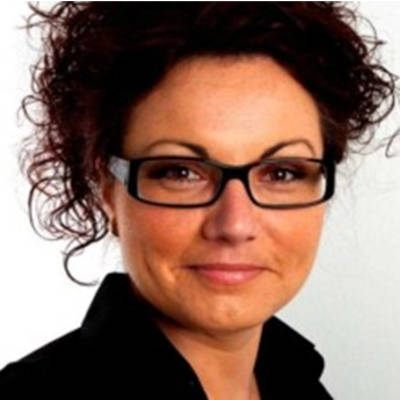
Dorthe Eisele
CCNY
Dr. Dorthe M. Eisele was born and educated in Germany and grew up in Berlin. She studied physics at the Technical University of Berlin, Germany, and finished an external Diploma Thesis (comparable with a US Master Thesis) from the Physikalisch Technische Bundesanstalt (German Institute of Standards), Germany, at the Berlin Electron Storage Ring Society for Synchrotron Radiation II (known as BESSY II), in collaboration with the Lawrence Livermore National Laboratory (LLNL), USA. In Dec. 2009 she received her doctoral degree, Dr. rer. nat. (PhD equivalent), in experimental physics from the Physics Department (group of Prof. Juergen P. Rabe) of the Humboldt University Berlin, Germany, in close collaboration with Prof. David A. Vanden Bout from the Chemistry Department of University of Texas at Austin, USA. From March 2011 till August 2014, she was a Postdoctoral Associate at the Center for Excitonics of the Massachusetts Institute of Technology (MIT), where she conducted her research projects in the groups of Prof. Moungi G. Bawendi and Prof. Keith A. Nelson. Throughout her career she initiated fruitful and long-term collaborations such as with research groups of Klaus Muellen (Max Planck Institute for Polymer Research, Germany), Jasper Knoester (Physics Department, University of Groningen, The Netherlands), Daniela Nicastro (Biology Department, University of Brandeis, USA), Robert Silbey (Chemistry Department, MIT, USA), Andrei Tokmakoff (Chemistry Department, University of Chicago, USA). In 2011, Dr. Eisele received the prestigious Feodor-Lynen-Fellowship award and became a member of the Alexander-von-Humboldt-Foundation. In September 2014, she joined The City College of New York (CCNY) of The City University of New York (CUNY) as an Assistant Professor of Chemistry
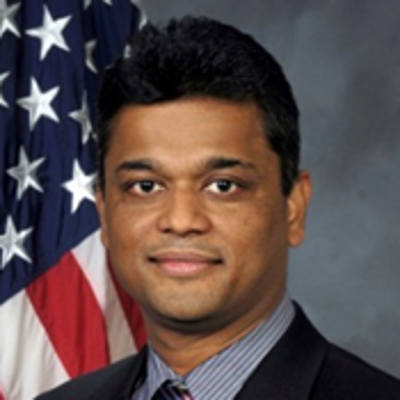
Rajesh Naik
AFRL
Dr. Rajesh R. Naik, is the research team leader for biological materials research in the Functional Materials Division, Materials and Manufacturing Directorate, Air Force Research Laboratory, Air Force Materiel Command, Wright-Patterson Air Force Base, Ohio. In this position, he provides technical vision and strategy and for the biological materials research program. He also leads research efforts in bionanotechnology, biomimetic materials and sensors.
Dr. Naik joined AFRL in 1999 as a visiting scientist, and became a federal employee in 2004. At that time he was assigned the position of Biotechnology Group Leader; and in 2007, he was appointed the technology advisor for biotechnology in the Nanostructure and Biological Materials Branch. Dr. Naik also served as the Chair for AFRL's Bio-X Strategic Technology Team from 2008-2011.
Scientifically, Dr. Naik has research interests in the area of bionanotechnology and biomimetics with focus on biosensing, bioelectronics, nanostructured materials and protein engineering. He has published over 190 peer-reviewed articles, several book chapters and has 10 awarded patents. He is also active in numerous technical communities.
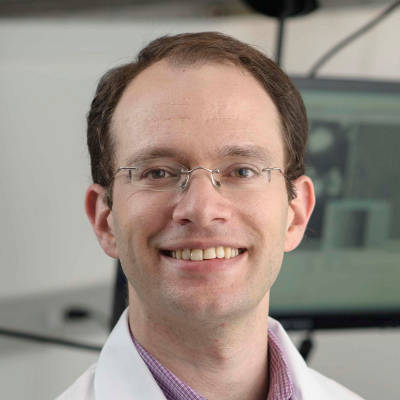
Daniel Heller
Memorial Sloan Kettering Cancer Center
Dr. Daniel Heller is an Assistant Professor at Weill Cornell Medical College and Assistant Member at Memorial Sloan-Kettering Cancer Center. His work focuses on nanoscale technologies, including optical biosensors for cancer research and diagnosis, and targeted nanoparticles to treat metastatic cancer. Dr. Heller obtained a BA in history from Rice University in 2000. He obtained his PhD in chemistry from the University of Illinois in 2010 and completed a Damon Runyon Postdoctoral Fellowship under Professor Robert Langer at the David H. Koch Institute for Integrative Cancer Research at MIT. Dr. Heller started his laboratory in 2012 and is a recipient of the National Institutes of Health Director's New Innovator Award.
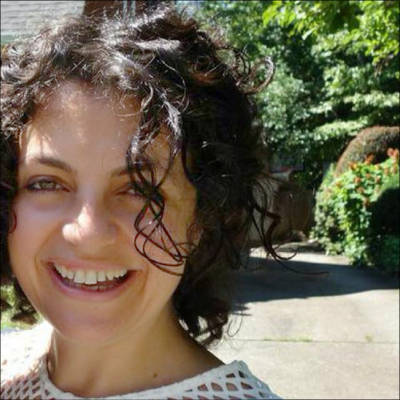
Elisa Riedo
Georgia Tech
Professor Elisa Riedo received her B.S. in Physics from the University of Milano, Italy in 1995 with Summa Cum Laude. In 2000, she received her Ph.D. in Physics in a joint program between the University of Milano and the European Synchrotron Radiation Facility in Grenoble, France. For four years, she has been a Post Doctoral Fellow at the EPFL in Lausanne working on the origin of nanoscopic friction. Since 2003, she is a faculty member of the School of Physics of the Georgia Institute of Technology. She is the director of the picoForce Laboratory, which develops new scanning probe microscopy based methods to study the properties of materials at the nanoscale and for nanomanufacturing advanced nano-materials. In 2013, Dr. Riedo was elected APS Fellow, in the Division of Condensed Matter Physics, for her atomic force microscopy studies of nanoscale friction, liquid structure and nanotube elasticity, and the invention of thermochemical nanolithography.

